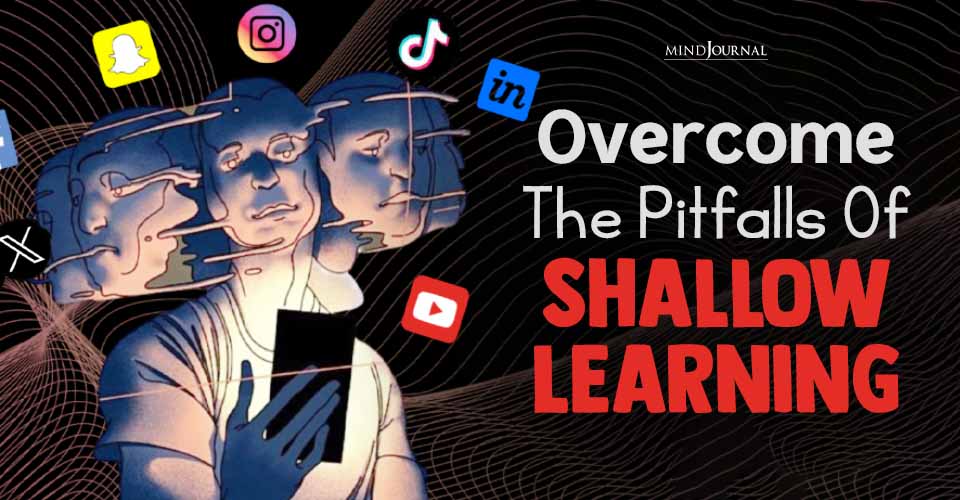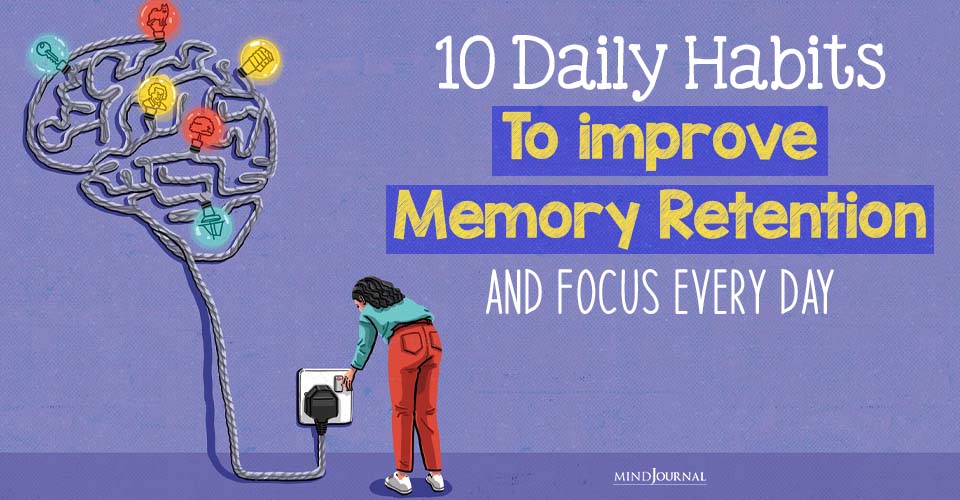Are you struggling to retain what you learn? Do distractions derail your progress? Discover how to replace shallow learning with deep learning and reclaim your focus!
Limit social media, engage deeply, and practice mindfulness to enhance focus.
Key points
- Shallow learning reduces attention span and hampers deep learning that requires focus and critical thinking.
- Deep learning is focused on problem-solving and connecting various sources of new and existing knowledge.
- Counter shallow learning with mindful media use, engaging with long-form content, and promoting deep thinking.

We are often entertained and spend a high proportion of time on digital social media platforms like TikTok, Instagram, Facebook, Twitter(X), and Snapchat, which inform and entertain us with short-form content. What are the implications for both shallow and deep learning? We may be in danger of moving beyond the shorter, brief bursts of entertainment videos and content and losing our cognitive abilities for deeper learning.
Shallow learning is rote and relies on skimming through videos, articles, and material without a deep understanding of key concepts and theories.
For many, recalling what you saw on a TikTok video the day before is difficult. In an educational setting, this can be problematic in ensuring our students are deep thinkers and develop a strong grasp of the subject matter at hand.
In contrast, deep learning focuses on problem-solving and connecting various sources of new and existing knowledge. It requires greater time, effort, and critical thinking, which is often lacking in shallow learning.
How does short-form content affect a deeper understanding of the subject matter?
First, it is notable that attention span is decreasing. We are constantly bombarded with short entertaining clips, advertisements, and massive amounts of social media content vying for our attention, which can affect our ability to engage in deeper learning.
Second, when we passively consume content in the form of shallow learning we miss out on the chance to engage with content, and question and understand key principles and concepts. We miss out on the ability to think critically and solve complex problems.
Third, deeper learning stimulates long-term memory retention through repeating engagement and application of knowledge with content. Shallow learning, in contrast, results in cloudy memory formation, where the learner is stimulated by the new piece of content, which replaces the old with superficial learning.
Fourth, there is a deep concern we are losing the ability to concentrate beyond a 30-second TikTok video. Research has identified the addictive nature of social media, which is designed to maximise user engagement, as contributing to this situation.
Notifications, likes, and comments create constant feedback, which reinforces users to keep returning, decreasing their capacity for sustained attention.
How To Overcome The Pitfalls of Shallow Learning
However, while this trend appears hard to reverse, users can adapt and, with a focused effort, reclaim their ability for deeper learning. To counter the effects of shallow learning, these initiatives can be deployed:
a. Being aware of mindful media consumption and the amount of time we spend on short-term content and setting time limits is a strategy.
b. Designating times for social media usage during the day and allowing time can help users reclaim their attention span.
c. A key strategy is being actively engaged with content, which involves taking notes, discussing topics, and developing different scenarios for a problem.
d. Engaging in debates and puzzles, playing bridge, and problem-solving can help stimulate our cognitive learning.
e. Engaging in long-form content such as books, documentaries, and articles can help assist focus and attention for longer periods. Taking notes in meetings and the classroom can also help with retention.
Structured learning routines, where complex subjects are broken down into manageable chunks and revisited regularly, can reinforce deeper learning practices.
By cultivating an environment that values and promotes deep engagement with information, we can lessen the effects of shallow learning and retain our ability to think critically and concentrate for longer periods.
Key takeaway
We have explored that shallow learning through short-form content represents challenges for deeper learning; it is possible to counteract these effects with intentional learning techniques.
By being aware of our media consumption and actively seeking opportunities for deeper engagement, we can improve our ability to concentrate and think critically.
This requires balancing the convenience of quick-form content with the need for deeper understanding, ensuring we remain capable of deep, meaningful learning in an increasingly fast-paced world.
Read More Here: Brain Rot Alert! 5 Everyday Habits That Are Messing With Your Mind
For more insights on psychology and human connection, follow my work on Psychology Today.
References American Psychological Association. (n.d.). Speaking of psychology: How much can we boost attention spans? Retrieved July 27, 2024. (2024). Mindful Media Consumption: A Science-Based Guide to Wellness. Zenodo. Deeper Learning. (n.d.). Deeper Learning. Retrieved July 27, 2024. Geitz, G., Brinke, D. J., & Kirschner, P. A. (2015). Goal orientation, deep learning, and sustainable feedback in higher business education. Journal of Teaching in International Business, 26(4), 273-292. Madsen, S. S., Thorvaldsen, S., & Archard, S. (2021). Are teacher students' deep learning and critical thinking at risk of being limited in digital learning environments? In Teacher Education in the 21st Century (pp. 55-72).
Written by: Dr. Nigel R. Bairstow Ph.D.
Originally appeared on: Psychology Today










Leave a Reply